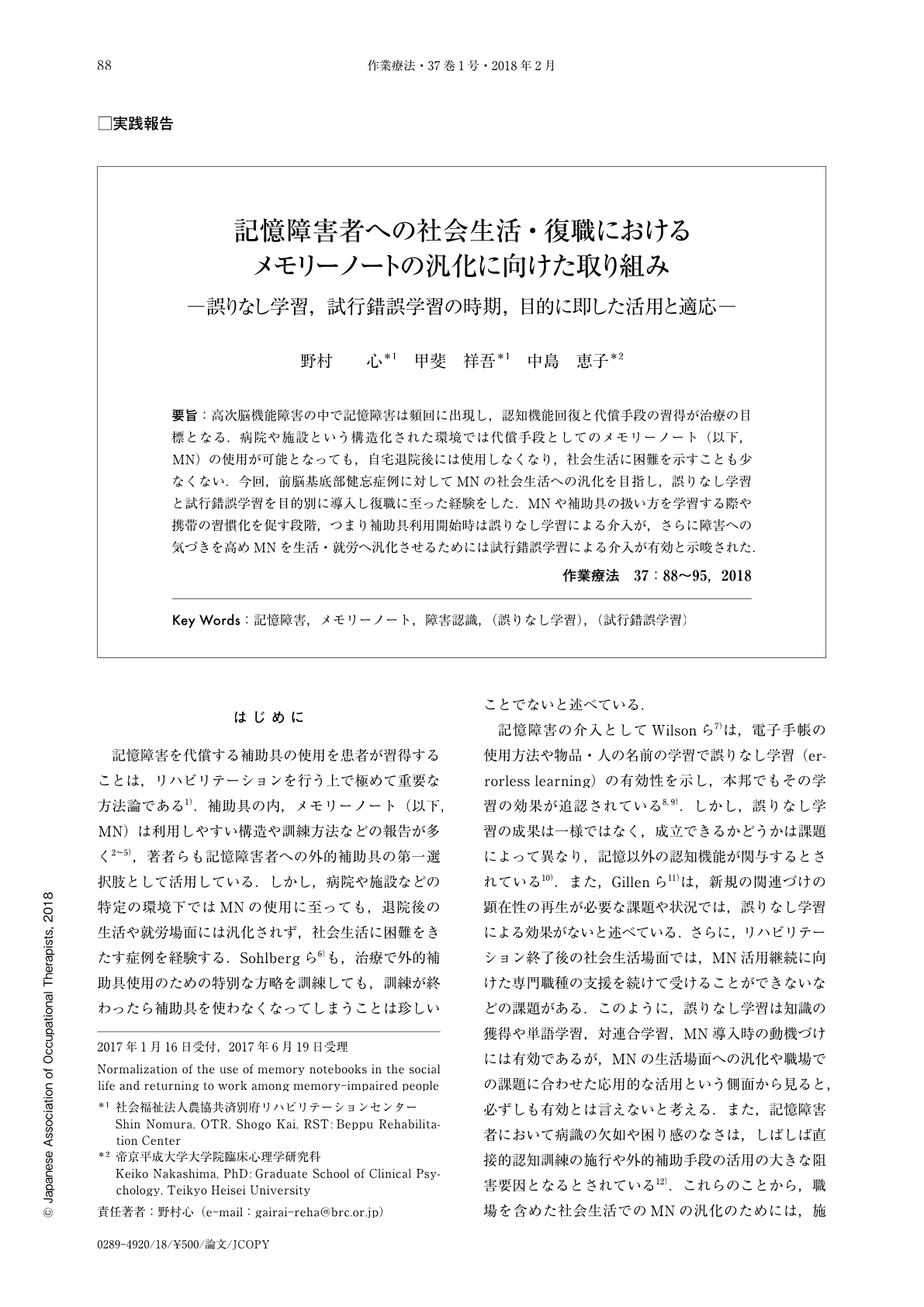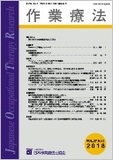Japanese
English
- 販売していません
- Abstract 文献概要
- 1ページ目 Look Inside
- 参考文献 Reference
要旨:高次脳機能障害の中で記憶障害は頻回に出現し,認知機能回復と代償手段の習得が治療の目標となる.病院や施設という構造化された環境では代償手段としてのメモリーノート(以下,MN)の使用が可能となっても,自宅退院後には使用しなくなり,社会生活に困難を示すことも少なくない.今回,前脳基底部健忘症例に対してMNの社会生活への汎化を目指し,誤りなし学習と試行錯誤学習を目的別に導入し復職に至った経験をした.MNや補助具の扱い方を学習する際や携帯の習慣化を促す段階,つまり補助具利用開始時は誤りなし学習による介入が,さらに障害への気づきを高めMNを生活・就労へ汎化させるためには試行錯誤学習による介入が有効と示唆された.
Memory impairment is a common cognitive disorder with the recovery of cognitive function being the main goal of treatment. In structured environments such as hospitals and care facilities, a memory notebook (MN) is sometimes used to compensate for memory impairment; however, a MN is seldom used once the patient returns home, which can cause difficulties in their social life. To facilitate the use of a MN in the social lives of patients in cases of basal forebrain amnesia, we used both errorless and trial and error learning for specific purposes, resulting in the patients successfully returning to work. Intervention by errorless learning may be effective in the early stages of incorporating auxiliary tools where patients are required to learn how to use a MN and habituate themselves to carry the tools with them. Furthermore, results indicate that intervention by trial and error learning is effective in enhancing the awareness of higher brain functional disorders and normalizing the use of a MN in home and work environments.

Copyright © 2018, Japanese Association of Occupational Therapists. All rights reserved.


